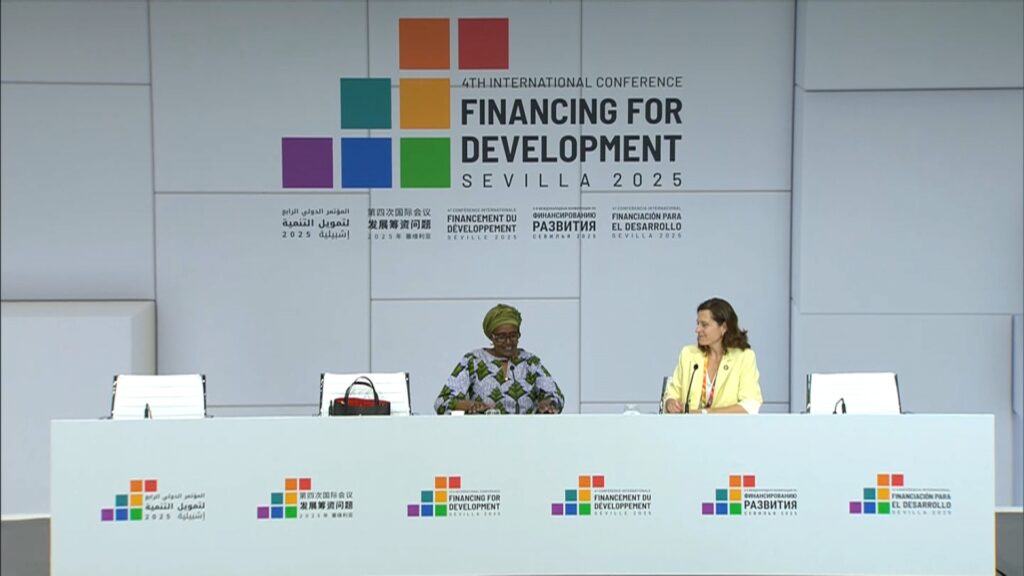
Facing the potential loss of its largest donor, which contributes 73 percent of all international resources for the AIDS response, UNAIDS has issued a stark warning that 6.6 million additional people could be newly infected by 2029 if the funding gap is not addressed. This alarming projection was shared by Winnie Byanyima, the Executive Director of UNAIDS, during a press conference at the Fourth International Conference on Financing for Development (FFD4) held today in Sevilla.
Byanyima highlighted the dire consequences of cuts to international development funding, stating that the number of AIDS-related deaths in 2024 was 630,000. She warned that without adequate funding, this figure could rise dramatically to 4.2 million within four years. “You can see that a pandemic that has been declining could be resurging again. The crisis is real, is being felt around the world,” Byanyima emphasized.
Global Financial Commitment at Risk
The announcement comes at a critical time as UNAIDS urges donor countries to maintain their commitments to a gradual transition in funding strategies. Byanyima called on global leaders to rethink traditional approaches to health and development financing, advocating for debt justice, tax justice, intellectual property justice, and global public investment.
She pointed out the inequities in current financial systems, stating, “So today, the burden of debt tax dodging and other tax abuses is taking away 2.5 times more from Africa than it gets through aid.” Her remarks underscore the urgency for structural reforms that would enable developing countries to generate their own domestic resources and fund their development initiatives.
Historical Context and Current Challenges
The fight against AIDS has seen significant progress over the past few decades, with global efforts reducing the number of new infections and AIDS-related deaths. However, the potential withdrawal of major funding threatens to reverse these gains. Historically, international aid has played a crucial role in supporting countries with limited resources to combat the epidemic.
According to experts, the current funding crisis is reminiscent of past challenges faced during the early years of the AIDS epidemic when resources were scarce, and the global response was fragmented. The need for a coordinated and sustained financial commitment is more critical than ever to prevent a resurgence of the disease.
Expert Opinions and Future Implications
Health experts warn that a failure to bridge the funding gap could lead to a public health catastrophe. Dr. Jane Doe, a leading epidemiologist, noted, “The progress we have made in the fight against AIDS is at risk. Without adequate funding, we could see a return to the high infection rates of the past.”
The move represents a call to action for wealthy nations to support fundamental reforms that would empower developing countries. Byanyima concluded her address with a strong appeal: “We need the rich countries to back the fundamental structural reforms that will give developing countries a chance to raise their own domestic resources and pay for their development.”
“So they must embrace, we want rich countries in particular to embrace debt, justice, tax justice, intellectual property, justice and new models of financing such as the global public investment idea,” she concluded.
Meanwhile, the international community watches closely as discussions at FFD4 unfold, hoping for a renewed commitment to global health financing that prioritizes sustainability and equity. The implications of the funding crisis extend beyond health, threatening broader development goals and highlighting the interconnectedness of global challenges.
As the world grapples with these issues, the next steps will be crucial in determining the trajectory of the global AIDS response. Stakeholders are urged to collaborate and innovate, ensuring that progress is not only maintained but accelerated in the years to come.





